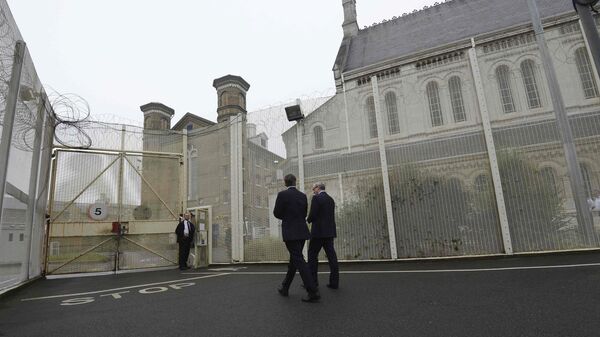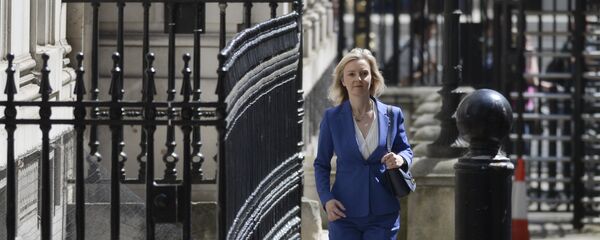"We have around 1,000 prisoners who have been identified as extremist or vulnerable to extremism," Cameron said in February 2016.
"And we know, through intimidation, violence and grooming, some of these individuals are preying on the weak, forcing conversions to Islam and spreading their warped view of the world."
Cameron pledged: "We will not stand by and watch people being radicalized like this while they are in the care of the state," and said, "Michael Gove [then Justice Minister] was the man for the job," to reform the prison system in England and Wales.
Michael Gove has since been sacked by Britain's current Prime Minister Theresa May and replaced by Liz Truss. However, the government's rhetoric remains unchained.
A review of "Islamist Extremism in Prisons, Probation and Youth Justice" has just been published along with the announcement that the prison system will be overhauled to try and stamp out radicalization in British jails.
'Jihadi-Wings'
Included in the many recommendations is the move to separate violent extremist inmates from other prisoners and hold them in special units, dubbed "jihadi-wings," to prevent other inmates from being radicalized.
"There are a small number of individuals, very subversive individuals, who do need to be held in separate units," Justice Secretary Liz Truss told British media.
Ian Acheson, former prison governor led the review into prison extremism, making the isolation of violent Islamist extremists one of his key recommendations.
Acheson's review also found that Islamist extremism manifests itself in prisons in various ways, from Muslim gang culture and drug trafficking, to aggressive encouragement of inmates to convert to Islam and Islamic extremist prisoners acting up as "emirs" exerting a controlling and radicalizing influence on the Muslim prison population and pressurizing supervising staff to leave prayer rooms.
Justice Minister Liz Truss has taken Mr. Acheson's review further, also announcing a ban on books — regarded as extremist — from prison libraries whilst inmates behaving "subversively," will be banned from Friday prayers. Prison chaplains will also be more stringently vetted.
But radicalization in British jails is no new phenomena. A leaked government report published in April 2016, revealed that some Muslim chaplains appointed by the Ministry of Justice were distributing hate literature and radicalizing inmates.
A copy of a review that had not been cleared for publication was obtained by London newspaper The Times and revealed that extremist pamphlets and CDs were being circulated in ten different jails.
In an interview with Sputnik, following the revelations that prison imams were linked to radicalization, terrorism expert Professor Paul Moorcraft said, "Prisons are considered to be universities of Jihadism."
Professor Moorcraft, author of "The Jihadist Threat: The Reconquest of the West" said: "When you have people involved in crime and looking to repent, it provides fabulous material for jihad.
"The Ministry of Justice is fully aware that the people in charge of selecting the imams are dubious — but there has been so much political correctness that the issue of radicalization in jails has been ignored. It doesn't take much to look into their backgrounds," Professor Moorcraft told Sputnik.
#IslamicState
— Professor Paul Moorc (@PMoorc) October 12, 2015
My new book on the subject out now. Looks at how similar the conditions are now compared with C7th pic.twitter.com/odBS9IsTPt
In an article for The Sun, Britain's popular tabloid newspaper, Liz Truss wrote: "I want to send a clear message to our dedicated prison officers who are dealing with this on the front line.
"We take the threat of Islamist extremism in prisons very seriously, and I will back you every step of the way.
"We cannot allow them to become hives of Islamist extremism, where minds are polluted and dangerous ideas allowed to spread," Liz Truss said, in striking resemblance to the words uttered by former PM David Cameron.
The number of Muslim prisoners in jails in England and Wales has dramatically increased in the last decade. There are currently 12,328 Muslim inmates in prison accounting for almost 15 percent of inmates compared with 6,571 in 2004.




